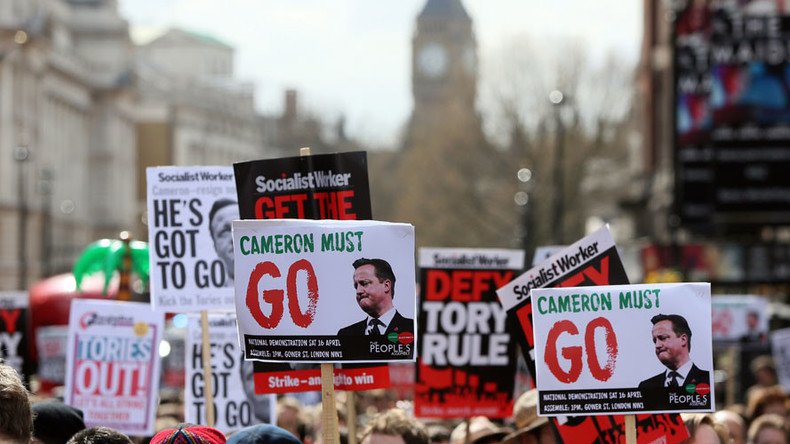Did Snowden’s mass surveillance leaks have a chilling effect on political activists?

A new report examines how political activists have responded to the knowledge they are under mass surveillance and subject to police spying.
Published on Tuesday, the report by St Andrews University and Open Democracy was compiled by interviewing a number of activists who had taken part in direct actions to see whether state surveillance has influenced them.
The report found that although the leaks by NSA whistleblower Edward Snowden had little impact on activists beyond confirming suspicions, the police spying scandals had affected climate campaigners profoundly.
It also found that “faced with increased surveillance challenges, activists have not always adapted successfully.”
Part of this is a lack of “trusted communications tools,” which has made “direct action impossible to organize.”
The authors argue it is a case of “whether activists are able to adapt as the state adapts and, in doing so, to keep open a space for radical protest within the overall political ecosystem.”
While protest is far from over in the UK, the authors claim “activists are continuing to rely on tried and tested methods of organization,” that are not designed “to counteract forms of surveillance and disruption, which are likely to become increasingly routine parts of the state toolkit as we move deeper into the information age.”
In April, a survey suggested the UK is sleepwalking into an Orwellian surveillance state, with most of its citizens unaware of or disinterested in the far-reaching implications of the government’s Investigatory Powers (IP) Bill.
A poll conducted by broadband comparison site Broadband Genie reveals the widespread confusion many Brits are experiencing with respect to the soon-to-be-implemented legislation.
Known to its opponents as the “snoopers’ charter,” the bill will give UK law enforcement bodies unprecedented access to citizens’ online activities.












